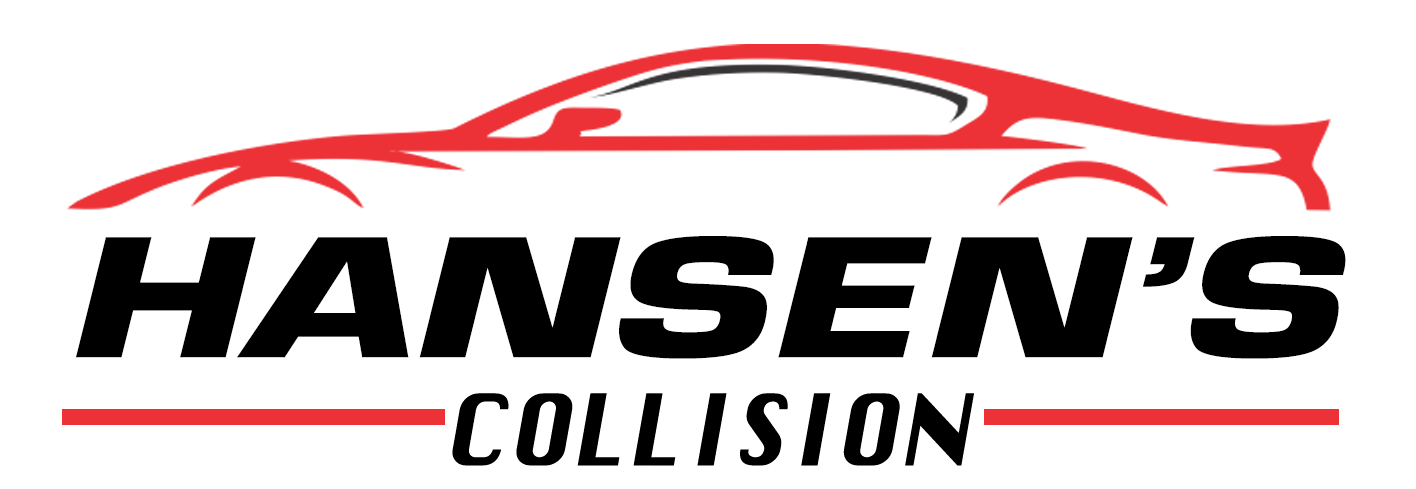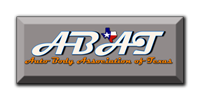Handling your claim
KNOW YOUR RIGHTS?
How to file a Complaint with the Texas Department of Insurance:
1. Go to the Texas Department of Insurance complaint page on the link below.
2. Look on the left towards the middle of the page.
3. Click on "Online Form" and follow the instructions.
4. You will receive a response and your issue will be addressed.
What Should I Know About Auto Insurance?
Here is what the state says:
TEXAS DEPARTMENT OF INSURANCE
P.O. BOX 149091
AUSTIN, TX 78714-9091
Telephone:1-800-252-3439
Fax Number: 512-475-1771
Web Address: http://www.tdi.texas.gov/consumer/complfrm.html
(I) The verbal notice at a minimum must consist of the following:
By law, you have the right to select where your motor vehicle is repaired and the parts used for repairs. However, an insurance company is not required to pay more than a reasonable amount for such repairs and parts. your rights concerning motor vehicle repairs are explained in the insurance code, article 5.07-1, a copy of which will be mailed to you within 15 business days on request.
Section 5.501 was adopted to become effective August 17, 1998
Know your rights... Know these facts
1. By law, you may have your car towed to and repaired at any repair facility you choose.
2. Only one estimate is required to determine the amount of damage!
3. Check with your agent to determine if a rental car is available under your policy.
4. Make sure that the insurance company pays for all covered repairs.
5. Choose a repair shop carefully. Your future safety depends on quality workmanship today. Ask as many questions you have, until you are comfortable with the body shop.
Call your insurance company and tell them where you would like to have your vehicle repaired. Don't be manipulated by insurance companies’ word tracks. Some insurance companies make you feel that they have your best interest in mind. When in reality they are just managing their bottom line. The reason some insurance companies use carefully crafted word tracks is that the state does not allow insurance companies to "direct", "steer" or "refer" customers to a particular shop (or they are not supposed to), so they have come up with the following word tracks to intimidate the customer into thinking they have to do what the insurance company says.
The Un-Truths
These are common phrases used by some Insurance Companies when you select a shop that is not on their "List", and what our response is.
1. "They are not one of our network shops and they are not on our list, we can't guarantee the repairs"
All reputable Body Shops offer lifetime Warranty/Guarantee as long as you own the vehicle.
2. "If you use them, we can't get an adjuster out for several days, if you take it to our network shop we will have someone start on it right away".
This is just another ploy to steer you, most insurance companies are required to send adjusters out within 24 to 48 hours. If you are the claimant or have rental coverage on your own policy, they are required to pay for your rental expenses in the interim.
3. "If you use that shop you will have to pay for your rental out of pocket"
This is not true, but some insurance companies will try to force you into a rental reimbursement, which means they will either try to get you to pay with a credit card and then reimburse you, or offer to send check for x amount of rental days(which you should promptly refuse to do) . Most companies have direct bill agreements with rental companies, but they do not always disclose that. Always remember as a claimant against a company, that you also have specific rights that a policyholder may not have.
4. "If they charge more than the prevailing rate, you will have to pay the difference in repair cost"
All reputable Body shops are fully aware of prevailing rates and rarely is there an issue.
5. "Claims take longer to settle if you use them"
Only on rare occasions. The only thing that takes longer is they are sometimes slow to respond and they do not pay as quickly as they pay their preferred providers.
These are just a few of the word tracks used to manipulate the customer into using a specific repair facility. Be careful it's your vehicle, your investment; you have the right to make the choice on who repairs your vehicle.
10 Things to Know Before Having Your Car Repair
This is valuable information that we freely give in order to offer the best possible advice.
1. Your car is the second largest investment you're likely to make. Preserve its value and your safety by having it repaired professionally.
2. Never drive a car that could be unsafe because of damages.
3. Some insurance companies may want you to visit their drive-in claims center before having your car repaired. You can do this, or you may leave your car at the shop of your choice and ask that the insurance company inspect the car there.
4. There is no law requiring you to obtain more than one estimate or appraisal.
5. You have the right to go to the repair shop of your choice. Your insurance company cannot require you to go to a particular shop.
6. Differences in repair estimates are common. A lower estimate may not include all necessary work.
7. Choose a shop that has uni-body repair equipment and certified technicians. (by manufacturer, I-CAR or ASE, for example)
8. Ask if the shop will be using genuine manufacturer replacement parts.
9. Ask if the shop offers a repair warranty. A warranty is like a promise.
10. Let the shop of your choice help you negotiate your claim with the insurance company.
Frequently Asked Questions
Know Your Policy
Many people have no idea what their auto insurance policy really says. A common pitfall is to believe that they have 'Full Coverage' or 'Their insurance company will take care of everything'! When it comes time for repairs most are amazed to find that they don't even have provisions in their policy for rental car coverage.
Many policies are available that are excellent coverage and there are a lot of solid insurance companies and agents. Get your policy out and review it. Maybe even go over it with your agent and really get to know exactly what it is you are paying for every month!
Many people are not prepared to make the decisions they are forced to make shortly after being involved in an accident. If you have taken the time to review your insurance policy some of these decisions would be answered. It’s a good idea to take some time to think some of the decisions through in advance. Sit down with your spouse, a close friend, your agent etc. and get some answers to questions like, 'If I was involved in an accident, what decisions do I need to make and how would I make them?'
YOU HAVE JUST BECOME INVOLVED IN AN ACCIDENT! It can happen that quick anytime you are driving. Not a pleasant thought... Unfortunately it happens. Even to the best of drivers. It may or may not be your fault! But what happens afterward is up to you. Many people believe that since their insurance company is paying the bill, the decisions should be up to them. The truth is: It is your money that the insurance company is spending to pay for repairs. Remember, you pay premiums every month and count on the insurance company to be there for you. It's your money. It's your car. You make the decisions.
The following information is designed to aide you in the repair of your damaged vehicle. The material is intended to be general in nature. Before obtaining repairs, you should contact your attorney to ensure that the information complies with your state laws and regulations. This material has been prepared by the Automotive Service Association (ASA).
Question: Must I obtain three estimates?
Answer: Generally, no. Unless your policy states otherwise, no one can tell you to obtain more than one estimate. You, as the car owner, may do so, should this be your desire.
Question: What is the best procedure for me to get quality repairs and quickly get my vehicle back on the road?
Answer: Take your vehicle to a reputable repair shop. Leave it with the manager. Instruct the manager to contact your insurance company and advise them as to the damage. You should then call your insurance company and advise them of the vehicle's location.
Question: I don't believe I was at fault in the accident. Should I use my own collision policy or try to collect from the other party?
Answer: Try to collect from the other party because you will not have to pay a deductible. Also, if you use the other person's policy, you may be entitled to a rental car while yours is being repaired, and no accident should be charged against your policy.
Question: I am sure that the other driver is at fault, but no one has made any effort to see to the repairs of my auto. What can I do?
Answer: You are the owner of the automobile. Only you have the legal right to make arrangements for the repair of your automobile, not the insurance company.
Question: Do I have to take my vehicle to a drive-in claims service?
Answer: Generally, no. Unless your policy provides otherwise, it is not mandatory to take your vehicle to a drive-in claims service. Usually it will suffice for you to call your insurance company and tell them where the vehicle can be examined by a claims person.
Question: If I go to a drive-in claims service, do I have to take the car to its preferred shop?
Answer: Generally, no. However, if you decide to take your car to the preferred shop, ask your insurance company to implement its "elects to repair" clause (check your insurance policy). This may cause the insurance company to be responsible for, among other things, the quality of repairs.
Question: I am having a problem with the insurance company. Can the state insurance commissioner's office help me?
Answer: Perhaps, yes, but the commissioner's authority is limited! The commissioner's office in your state can describe the scope of authority for you.
Question: Can the insurance company and service shop make an adjustment and start repair on the auto without the owner's consent?
Answer: Generally, no. You should be presented an estimate to know what is being repaired on your vehicle before repairs are made, unless your policy states otherwise.
A Final Word
Most state laws make it unlawful for any person to operate any motor vehicle that is unsafe or has defective equipment. Insist on having your vehicle restored to its pre-accident condition. Do not be pressured into having repair work done by a specific shop simply because of lower price.



